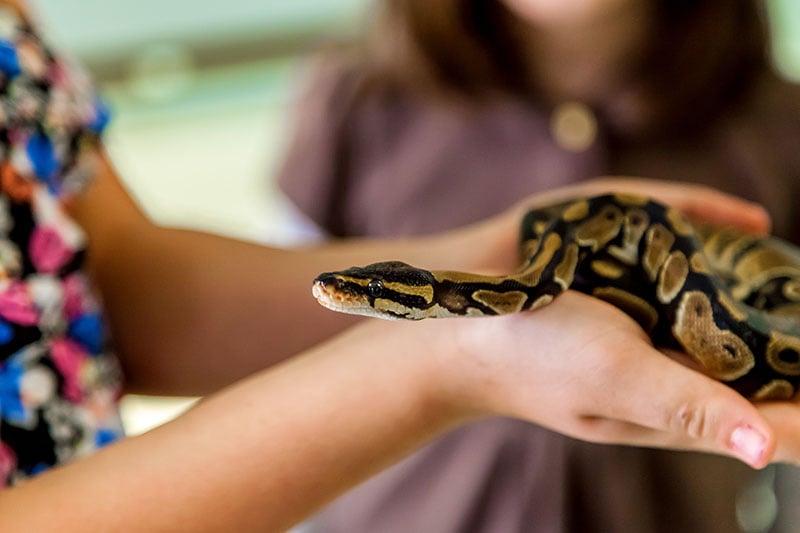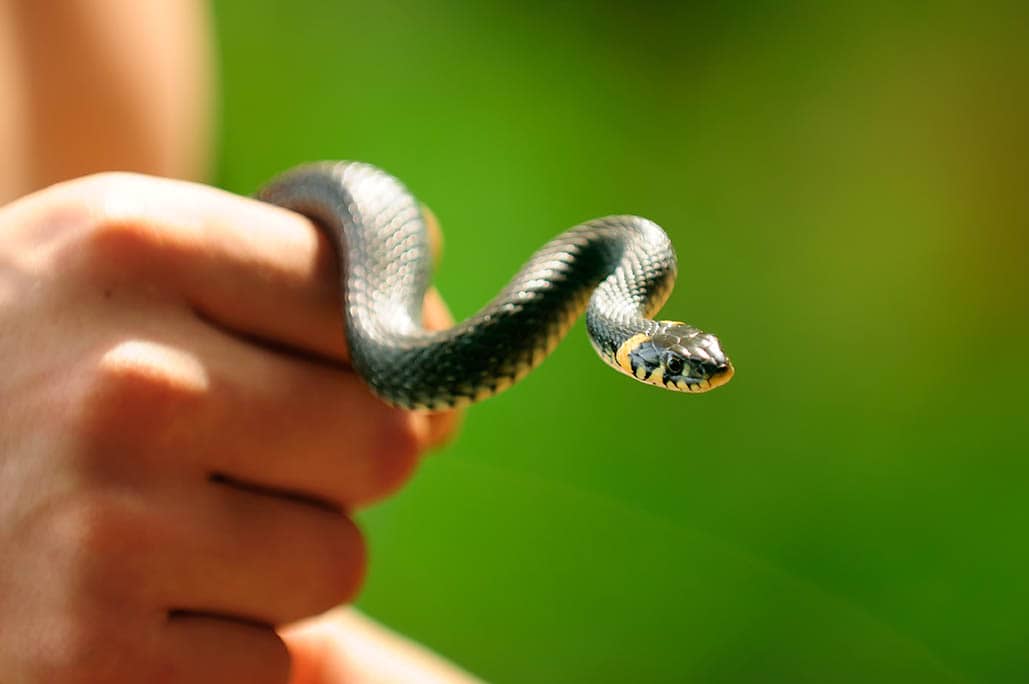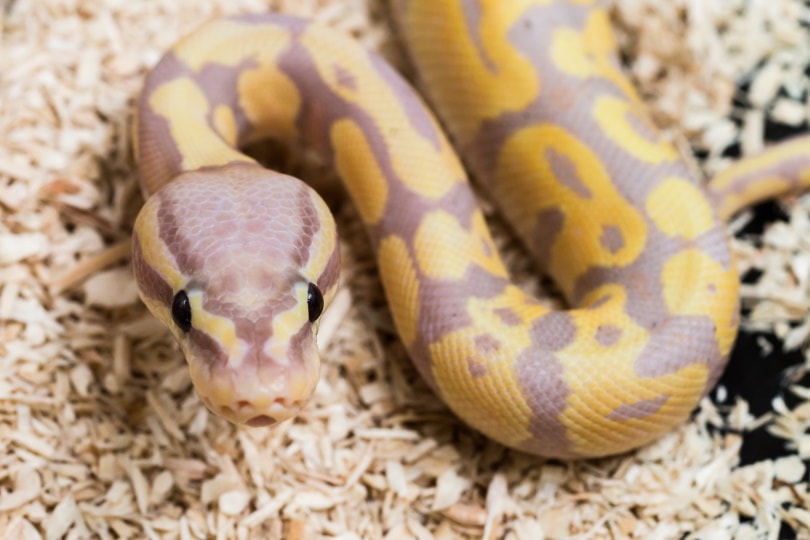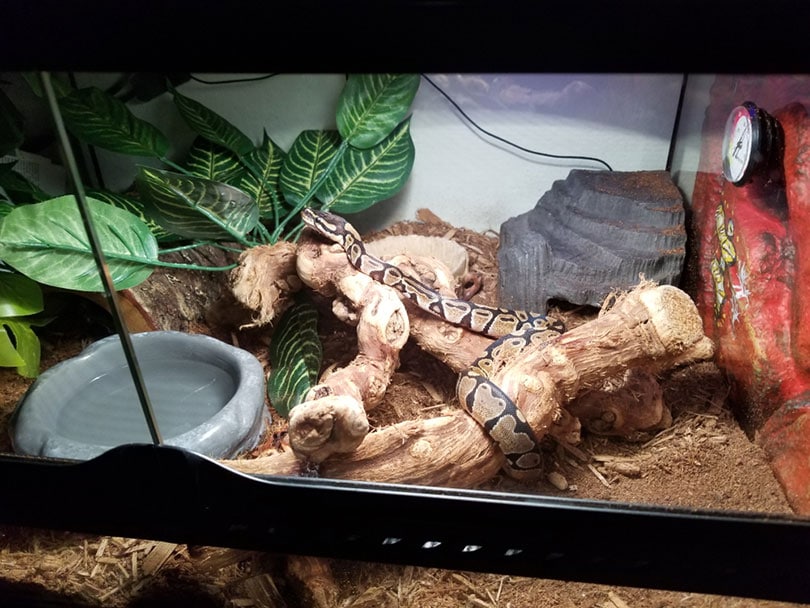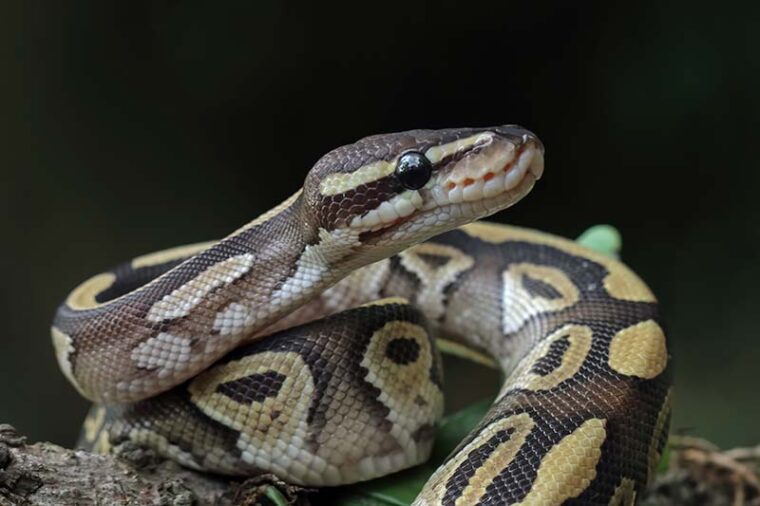
Ask any snake expert, online or in-person, what’s the best pet snake for beginners? Chances are, one of the top responses will be “ball pythons”. Not only are these snakes inexpensive and easy to care for, but they are also one of the calmest and easiest to handle pet reptiles. Ball pythons even get high marks as a great pet snake for kids!
No matter how gentle or tame, any pet–not just a snake–has the potential to bite. As a first-time snake owner or a parent thinking about getting their child a ball python, this possibility can be frightening. One big question you might have is whether ball pythons are poisonous? No, ball pythons are not poisonous and if a ball python does bite you, their bite is not usually life-threatening.
Does A Ball Python Bite Hurt?
Unlike poisonous snakes, ball pythons donʻt have long, sharp fangs, designed to sink into prey and deliver venom. Because ball pythons kill by constricting, their teeth are designed to clamp and hold their prey as they squeeze. Ball pythons can have up to 100 small, needle-like teeth in their mouth.
If a ball python does bite, thereʻs usually a reason (more on that later!), and how much it hurts will depend on why the bite happened. The pain of a quick bite is often compared to that of scratches from rose thorns or briers. You may notice puncture marks on your skin and some bleeding.
If the ball python bites repeatedly or clamps down hard and doesnʻt want to let go, the bite and pain will be more severe. Pulling away from the bite often causes deeper cuts too. These bites can cause bruising, bleeding, or deeper trauma, especially if they occur in a more vulnerable part of your body like the face or neck.
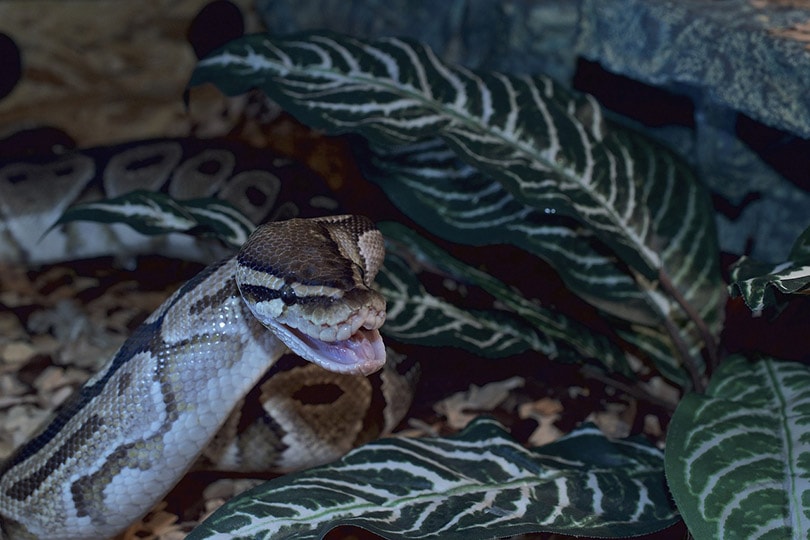
What To Do If a Ball Python Bites You
If youʻre bitten by a ball python, stay calm and try not to pull the snake free while the teeth are in your skin. This could cause more damage and deeper injuries. Remain calm and the snake will usually let go once they realize you arenʻt a threat or a meal.
Wash the bite with soap and warm water and call a doctor to find out what to do next. If the bite is more severe, the doctor may advise you to seek emergency treatment.
Contact a doctor about any snake bite, no matter how minor it seems. Anytime your skin is scratched or punctured, especially by a bite, an infection could develop. Seeking and following a doctorʻs advice is always the safest option in these circumstances.
Why Do Ball Pythons Bite?
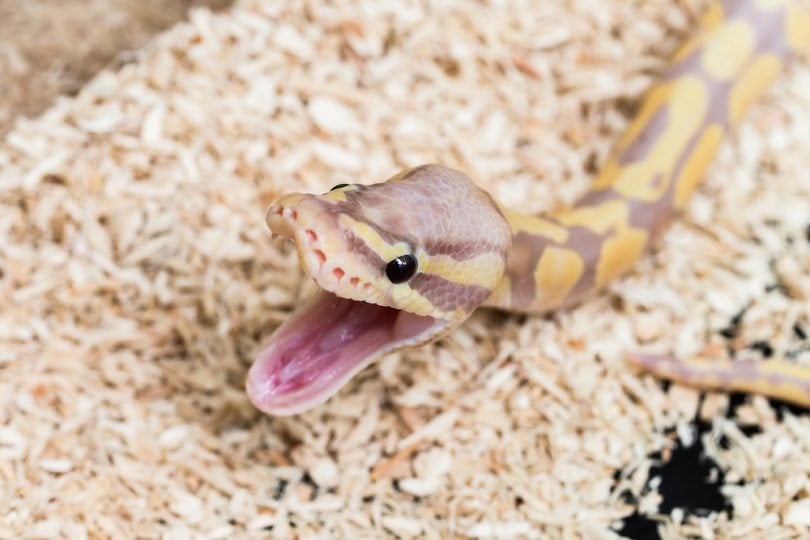
In general, tamed and socialized ball pythons are gentle snakes, more likely to hide from danger than try to bite. But if they do bite, it is typically for one of two reasons: hunger or fear/stress.
Hunger
Hungry ball pythons may mistake human hands or fingers for food, especially if they smell like something delicious! To avoid this predicament, wash your hands right before handling a ball python to get any lingering tempting odors off your skin. Try not to stick your hands into your pythonʻs tank to get them out–even if they are used to being handled–to further reduce your chances of being mistaken for a snack.
Fear/Stress
The other common reason a ball python may bite is out of fear or when theyʻre stressed. Young ball pythons who are still getting used to human contact are more likely to bite than adults, often out of fear. Ball pythons can also get stressed and grumpy after eating or when shedding their skin. The presence of a predator-type animal, such as the family dog, could stress a ball python enough to cause them to bite as well.
How To Avoid A Ball Python Bite
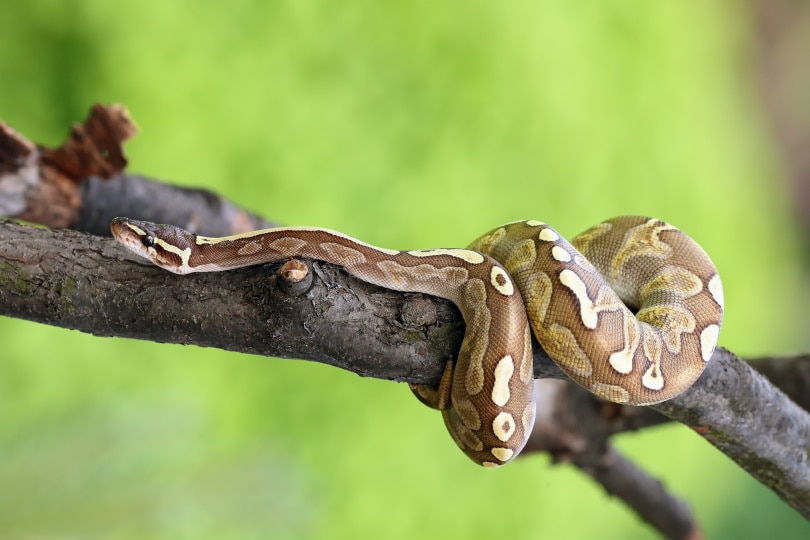
Again, no matter how gentle the pet, they all have the potential to bite. The keys to avoiding a ball python bite are prevention and learning to read the snakeʻs body language.
As we already discussed, washing your hands before handling your ball python and not reaching into their cage can help prevent hunger-based bites.
To help prevent fear or stress-related bites, be cautious about touching a ball python when theyʻre shedding or digesting a meal. If your pet family includes dogs or cats, make sure to keep them away from your ball pythonʻs tank to avoid any predator stress.
Once you know what to look for, ball pythons tend to communicate their stress or fear pretty clearly before they resort to biting. If your snake hisses, tenses up or acts nervous and jumpy, donʻt push your luck and avoid handling them until they calm down. A ball python that holds their head and neck in a tense S-shape is prepared to bite and should be left alone.
Please note that many states and jurisdictions may have legislation that prohibits owning, breeding, or purchasing, or selling snakes or certain snake species. Always make sure you have the permission to legally own an exotic pet before deciding to adopt one. If you are in the US, please refer to state laws before deciding to adopt an exotic pet. Elsewhere, please refer to the relevant laws where you reside.
Capturing wild animals to keep as pets is not advised, as this disrupts local ecosystems. Likewise, releasing exotic wild pets back to the wild is also not advised, as this too can disrupt the balance of local ecosystems.
Snakes are a long-term commitment and are generally not considered safe around children. They are also not compatible with other pets, including cats, dogs, birds, rabbits, and other exotic pets. They are opportunistic hunters who may attempt to strike or constrict anything they perceive as a potential meal, including their handlers.
Conclusion
No snake owner wants to be bitten, but with a ball python, you can feel some reassurance knowing that they arenʻt poisonous. Ball pythons are non-aggressive by nature and donʻt bite often anyway. Educating yourself about how to prevent bites and how to interpret your snakeʻs body language will further decrease your chances of getting chomped on by your ball python.
You may also be interested in:
- How Many Teeth Does A Ball Python Have? The Answer May Surprise You!
- How Long Can Ball Pythons Go Without Heat?
- Can Ball Pythons Swim? And Do They Like It?
Featured Image Credit: Agus_Gatam, Shutterstock



